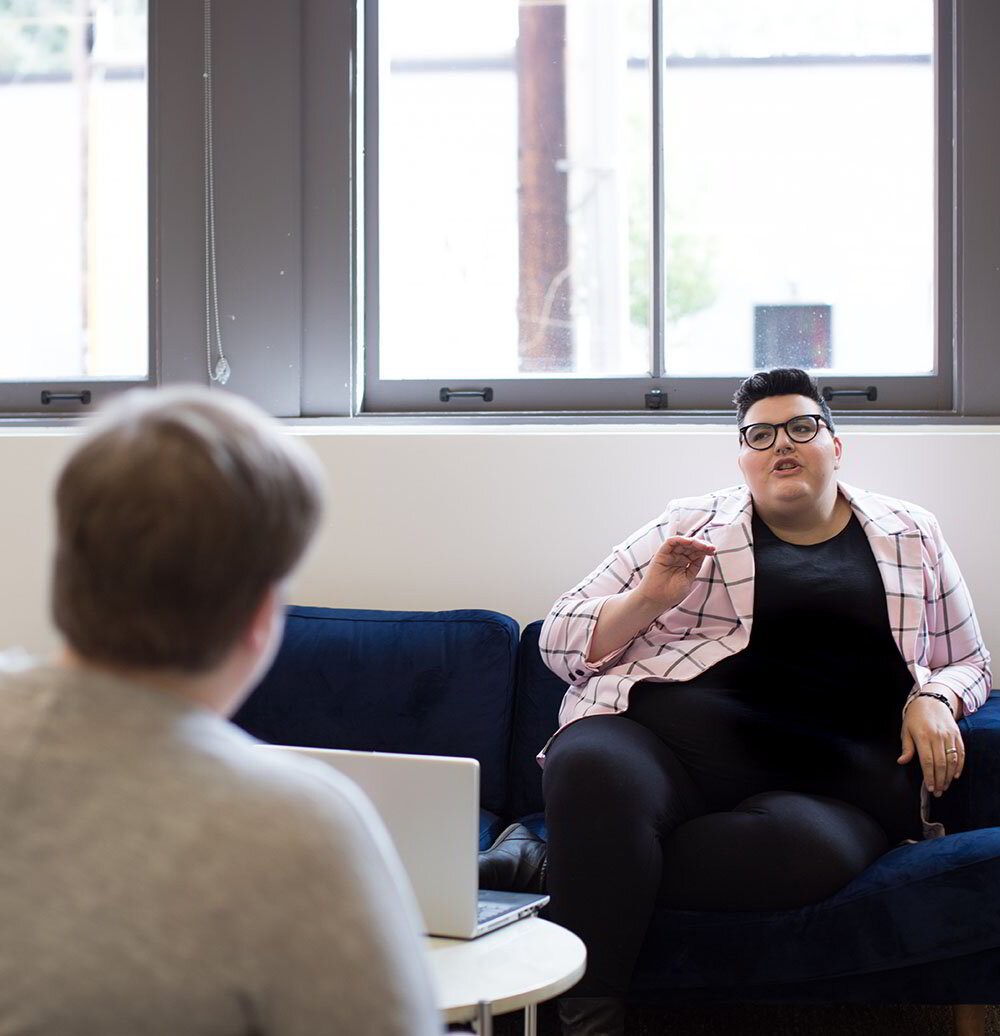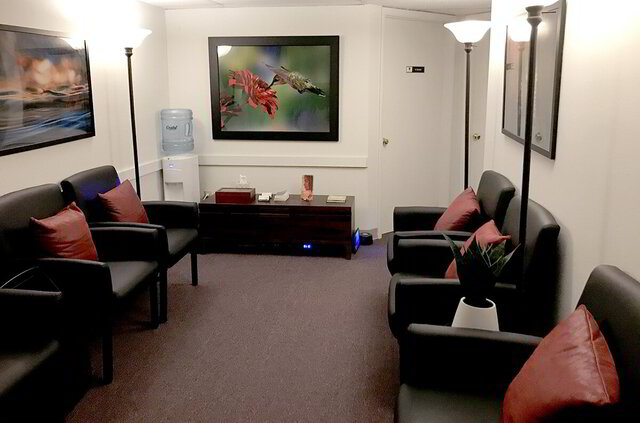Mike Elliot, MS, NCC, LPC
Specialties: ADHD, Addictions, Anxiety Disorders, Eating Disorders, LGBT Issues, Men’s Issues, and Weight Loss
Vegan Therapist in Pennsylvania
As an undergrad at the University of Pittsburgh, I briefly considered becoming a counselor. However, at that time college was quite a struggle. I had ADHD and poor study skills. Graduate school did not seem achievable. I put that dream out of my head and graduated with a degree in computer science.
The ADHD contributed to poor self-esteem and issues with anxiety. I was relatively successful in my career as a software engineer. As I was given more and more responsibility I would feel more and more anxious and eat more and more food to push those feelings away.
At the age of 40 I woke up one day at 280 pounds. I am 5’ 6” with a small frame so that clearly was not a good weight for me. My back and feet hurt from the excess load. My cholesterol and blood pressure were beginning to enter into the danger zones. I was headed for an early death and decided I could not do it any more.
With the help of therapy I learned to manage the negative aspects of ADHD. I also began to see that ADHD also had strengths that I could harness to become even more successful. I studied nutrition and developed a plan of eating for myself that was healthy and started to shed the excess weight. Therapy helped me to learn to process my feelings; I no longer needed to eat to escape my feelings. By the age of 43, I had lost 150 pounds and have never gained that weight back.
As people saw my success with the weight loss they would seek my help. In mentoring them I rediscovered that helping people felt better than writing software. It reignited the dream I had of becoming a counselor 25 years earlier. So after much soul searching I decided to go to graduate school to become a counselor.
In 2010 I started the Professional Counseling program at Carlow University. This time college was a very different experience. With my new skills for managing my ADHD, feelings, and life in general, graduate school was relatively easy. While at Carlow I did a practicum at Gateway Rehab. This gave me a good introduction to the field of addictions. I also did an internship at Persad Center. This gave me a firm foundation in outpatient therapy as well as working with LGBT issues.
After graduation I worked at TCV Community Services (formerly Turtle Creek Valley MH/MR) as an outpatient counselor. There I was exposed to vast array of mental health issues, which filled out my skill set even more. I have also continued to hone my skill set with post-graduate training. The most significant being the Advanced Certificate Practicum at the Albert Ellis Institute, the Gestalt Training Program at the Gestalt Institute of Cleveland, and becoming trained (and then certified) in EMDR by the Institute for Creative Mindfulness.
In 2016 I opened my own office as Elliot Counseling. I look forward to working with you.
About Us
How we view counseling
Studies have shown that the single biggest factor in whether therapy will be helpful to a client is the therapeutic relationship itself.

If you don’t feel safe, respected, and supported the therapy isn’t going to be very helpful. So while we spend a lot of our careers learning skills to help you with your thoughts, heal your traumas, and regulate your emotions, our main focus is in creating a welcoming, accepting, nurturing, and supportive environment within which to do the work.
There seem to be two main areas in the work that we do. One is in helping you to make sense of who you are and how to best support yourself. This largely relates to issues like neurodivergence (e.g. ADHD and Autism), sexual orientation, gender identity, and some biochemical brain issues (e.g. bipolar). This is often involves learning skills to manage better and working on self acceptance.
The other is unpacking and healing the things that have happened to you. In certain chaotic, dangerous, or unsupportive environments we learn adaptive coping skills that work in those environments. However, as we continue to grow and move out of those environments those skills that used to be helpful are sometimes causing more problems than they are solving. Some examples of these are anxiety, addictions, and eating disorders. Here we help you to unpack your thoughts and beliefs, shifting beliefs that are less than helpful or accurate, and heal your trauma.
In essence, we are here to help you create a life worth living. We look forward to our journey together.
What to Expect

New clients contact us through the form on this website, phone, or email.
Based on the issues you are seeking help with, your insurance, and your therapist preferences (if any) we recommend a therapist to you if we think we can be of help or let you know we aren’t the best fit if we aren’t. We endeavor to never accept a client we aren’t qualified to assist.
Generally you will speak, text, or email with a therapist to see you are a good fit for working together.
Once both of you agree it is a good fit, the therapist will invite you (via email) to our secure online portal. This will allow you to set up your account with us and fill out the paperwork online so you can hit the ground running when you arrive for your first appointment. We suggest filling out the paperwork the day, or day after, you receive the invitation to decrease the likelihood that you forget to do it. It is important that the paperwork be filled out before your first session.

In the first session, the therapist will go over your paperwork and get more information about what you are seeking help with.
If they feel they can be of help, they will outline how they might assist you in this based on their training, experience, and personality. If that feels like a good fit to you, then you would discuss how often you would like to be seen and start scheduling sessions.


